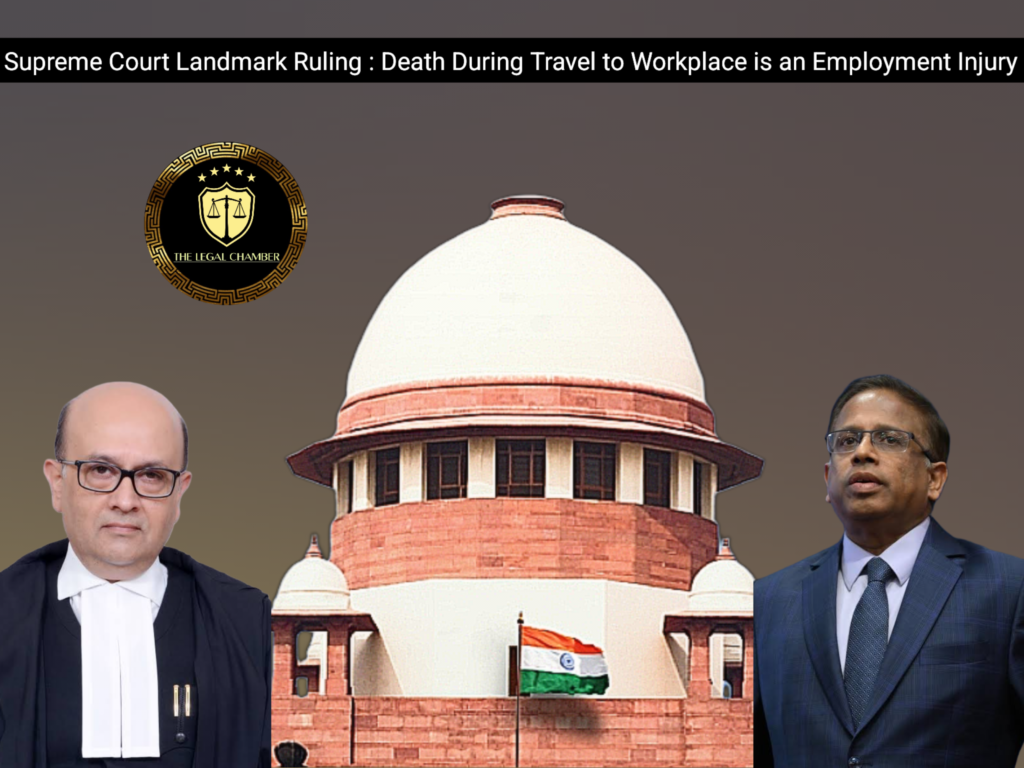
The Supreme Court ruled that an accident occurring during an employee’s commute arises “out of and in the course of employment” under the Employees’ Compensation Act, 1923. It held that the beneficial interpretation from a parallel amendment in the ESI Act is applicable, requiring only a established nexus between the commute and employment.
Facts Of The Case:
Shahu Sampatrao Jadhavar, employed as a watchman by a sugar factory, was scheduled for duty from 3:00 AM to 11:00 AM on April 22, 2003. While commuting from his residence to the workplace on his motorcycle, he was involved in a fatal accident approximately 5 kilometers from the factory premises, never arriving for his shift. His dependents, including his widow, four children, and mother, filed a claim for compensation under the Employees’ Compensation Act, 1923. The employer and the insurance company contested liability, arguing that the accident did not arise “out of and in the course of employment” as it occurred outside the factory’s precincts. The Workmen’s Compensation Commissioner awarded compensation, a decision subsequently overturned by the Bombay High Court. The High Court held that the journey to work was a personal activity and not incidental to employment. This ruling led the dependents to appeal to the Supreme Court, which became the final arbiter on whether a commute under such circumstances could be deemed part of employment for compensation purposes.
Procedural History:
The claim was initially filed by the dependents before the Commissioner for Workmen’s Compensation, who awarded compensation, holding the accident arose out of and in the course of employment. The insurance company appealed this decision to the Bombay High Court, which allowed the appeal and set aside the Commissioner’s order, denying the claim. The dependents then filed a special leave petition before the Supreme Court of India, which granted leave, heard the appeal, and ultimately allowed it. The Supreme Court set aside the judgment of the High Court and restored the order of the Commissioner, granting compensation to the appellants.
READ ALSO :Accused Can’t “Buy” Bail: Supreme Court Ends Practice of Monetary Undertakings for Release
Court Observation:
The Supreme Court observed that the phrase “arising out of and in the course of employment” in the Employees’ Compensation Act, 1923, must receive a beneficial interpretation as it is social welfare legislation. It held that the clarificatory and retrospective amendment introduced in the pari materia Employees’ State Insurance Act, which deems commuting accidents as arising from employment, serves as a guiding principle. The Court concluded that an accident occurring during an employee’s commute satisfies the requirement of nexus with employment, thus falling within the ambit of the statute for claiming compensation.
Final Decision & Judgement:
The Supreme Court allowed the appeal, setting aside the impugned judgment of the Bombay High Court. It restored the order of the Commissioner for Workmen’s Compensation, which had awarded compensation to the appellants. The Court held that the fatal accident, which occurred during the employee’s commute to the workplace, did arise “out of and in the course of employment” under the Employees’ Compensation Act, 1923. Consequently, the insurance company was liable to deposit the awarded compensation along with interest. No order was made as to costs.
Case Details:
Case Title: Daishala & Ors. vs. Oriental Insurance Company Ltd. & Anr. Citation: 2025 INSC 904 Civil Appeal No: Civil Appeal No. 6986 of 2015 Date of Judgement: 28th July, 2025 Judges/Justice Name: Justice Manoj Misra and Justice K.V. Viswanathan
Download The Judgement Here